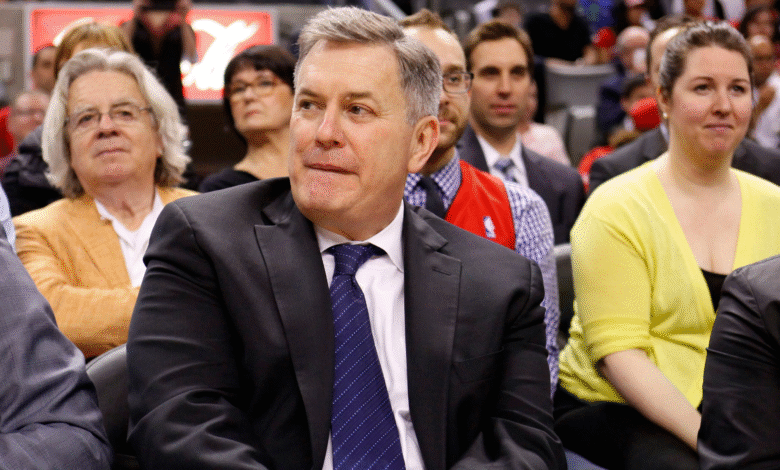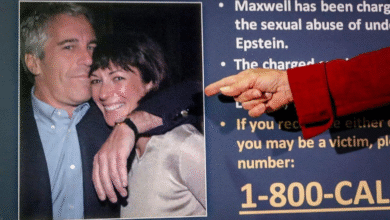Tim Leiweke Indicted for Bid Rigging in Texas Arena Project

In a stunning turn of events, Oak View Group CEO Tim Leiweke has been indicted on serious bid rigging charges linked to the development of the University of Texas’ Moody Center. The federal conspiracy indictment alleges that Leiweke conspired to manipulate the bidding process for the $338 million athletic arena project in Austin, Texas. As one of the most influential figures in the sports and entertainment industry, this legal challenge raises significant questions about the ethics of business practices within major development projects. The implications of these charges could reverberate throughout the industry, affecting not only Oak View Group but also relationships with partners and stakeholders involved in similar endeavors. Leiweke’s past as the CEO of prominent organizations only adds to the intrigue surrounding this high-profile case.
Tim Leiweke, a prominent name in the sports management arena, faces federal conspiracy charges in a controversial bidding scandal involving the University of Texas’ new athletic facility. Allegations suggest that Leiweke engaged in collusion to manipulate competitors during the selection process for the Moody Center project, a venture worth over $300 million. Such accusations highlight significant concerns surrounding transparency and fairness in public-private partnerships in the realm of sports infrastructure. As this case unfolds, it not only impacts Oak View Group’s reputation but also sets a precedent for governance and accountability in the industry. This indictment serves as a critical reminder of the scrutiny that accompanies high-stakes sporting and entertainment developments.
Overview of Tim Leiweke Indictment
Tim Leiweke, the CEO of Oak View Group, has recently found himself in the center of a federal investigation that culminated in a conspiracy indictment. Charged with bid rigging in connection with the University of Texas arena project, Leiweke’s actions have raised significant legal and ethical questions. Allegations claim that he conspired with a potential bidder to manipulate the selection process for the development of the Moody Center, a $338 million endeavor intended to enhance the university’s athletic facilities.
This indictment is not only pivotal for Leiweke but also for the entire bid process infrastructure in major sports and entertainment projects. The accusation revolves around the strategy of persuading another competitor to withdraw from the bidding, thus giving Oak View Group an unfair advantage. As this case develops, it could have far-reaching implications for how such projects are managed and overseen, particularly in terms of regulatory compliance and ethical bidding practices.
Impact of Bid Rigging Charges on Oak View Group
The bid rigging charges against Tim Leiweke represent a serious challenge for the Oak View Group. The allegations surrounding the Moody Center project could negatively impact the company’s reputation in the sports and entertainment industry. As Oak View Group manages over 400 venues globally, maintaining a credible and ethical standing is essential for future business opportunities. The ongoing investigation by the Department of Justice could also lead to increased scrutiny of their bidding processes and business practices.
Moreover, the potential financial penalties involved, including a $15 million fine, could influence the company’s operational strategies going forward. Other businesses and partners may reassess their affiliations with Oak View Group pending the results of this indictment. This situation emphasizes the importance of transparent bidding processes and robust compliance mechanisms to mitigate risks associated with allegations of misconduct.
Legal Consequences and Industry Reactions
The federal conspiracy indictment against Tim Leiweke not only poses legal ramifications for him but could also precipitate changes across the sports management industry. Legal experts speculate that if found guilty, Leiweke may face significant fines or even prison time, setting a precedent for others involved in similar schemes. The charges specifically highlight the dangers of collusion in competitive bidding scenarios, urging other firms to reevaluate their practices to avoid similar pitfalls.
Industry reactions have been mixed, with some stakeholders expressing concern over the integrity of the bidding process in sports venue projects. A heightened sense of vigilance may emerge, with institutions like the University of Texas potentially reassessing their contractor selection protocols. This case underscores the necessity for transparency and fairness in all aspects of public bidding, prompting a renewed focus on ensuring that such practices uphold the highest ethical standards.
Examining the Moody Center Project
The Moody Center is a significant project for the University of Texas, designed to enhance the institution’s athletic and entertainment offerings. Scheduled to provide a modern venue for various events, the arena represents a substantial investment in the university’s infrastructure. However, the ongoing legal issues surrounding its development could overshadow its intended purpose and future operations, leading to disruptions that may affect scheduled events and financial backing.
As the investigation unfolds, stakeholders will be keenly watching the implications for the Moody Center’s operational management. Any disruptions or reputational damage stemming from the indictment could deter future investments and collaborations within the university’s athletic programs. It remains crucial for the parties involved to ensure that the project maintains its integrity, both for the university and the broader Austin community that will benefit from this facility.
The Role of the Department of Justice
The involvement of the Department of Justice (DOJ) in the indictment of Tim Leiweke signifies a rigorous approach towards combating bid rigging schemes in federal contracts. The DOJ’s antitrust division is known for meticulously pursuing cases of collusion and unfair competition, which, if left unchecked, can undermine public trust in procurement processes. This landmark case is likely to draw attention to how the federal government enforces antitrust laws, especially in high-profile projects tied to public institutions.
Anticipated non-prosecution agreements for involved companies may indicate that the DOJ is keen on balancing accountability with cooperative compliance efforts. This approach could foster a climate where companies proactively disclose misconduct rather than engaging in lengthy litigation. Such strategies could lead to improved ethical practices in bidding, which is essential for ensuring fair competition in future projects like the Moody Center.
Potential Future for Tim Leiweke and Oak View Group
As allegations mount against Tim Leiweke, his future as CEO of Oak View Group hangs in the balance. Industry experts suggest that even if he manages to navigate through these legal challenges, the cloud of wrongdoing may persist, affecting his leadership credibility and the company’s operations. The pressure to maintain a transparent and ethical business model may ultimately require substantial changes in leadership or governance structures at Oak View Group.
Additionally, the company’s ability to secure contracts and partnerships may be contingent upon the outcome of these legal issues. Rebuilding trust with stakeholders and ensuring compliance with fair bidding practices will be pivotal for Oak View Group’s roadmap ahead. With the sports and entertainment sector evolving rapidly, demonstrating integrity and reliability will be essential for maintaining competitive leverage post-indictment.
Understanding Bid Rigging in Sports Projects
Bid rigging is a serious offense that undermines the foundation of competitive procurement processes, particularly in large-scale sports projects like the Moody Center. This illegal practice can lead to inflated costs and subpar outcomes, affecting not only stakeholders but also the general public who rely on these facilities for entertainment and sporting events. Understanding the mechanics behind bid rigging is crucial for industry professionals to foster compliance with antitrust laws.
The recent indictment of Tim Leiweke serves as a stark reminder of the detrimental effects of collusion in bidding processes. It reveals a critical need for comprehensive training and awareness initiatives within organizations to prevent such unethical behavior. As project stakeholders increasingly prioritize transparency, a shift in culture towards fostering open competition will be necessary to rebuild trust and credibility in future ventures.
Community Implications of the Indictment
The indictment of Tim Leiweke has broader implications for the communities surrounding the University of Texas and the Moody Center project. As a major investment in local infrastructure, the ability of the project to proceed unimpeded is vital for local economic growth and employment opportunities. Community stakeholders are likely to express concerns about potential disruptions arising from these legal challenges, including delays in construction and project completion.
Furthermore, the community’s perception of the university and affiliated organizations may be influenced by the legal troubles surrounding Oak View Group. Transparency and effective communication from involved parties will be essential in maintaining public trust as the situation unfolds. Engaging with community leaders and constituents can help ensure that public concerns are addressed while striving to uphold the integrity of this important project.
Future of Federal Antitrust Enforcement
The indictment of Tim Leiweke could signal a reinvigoration of federal antitrust enforcement in the United States, especially within the realm of public sector contracts. As agencies like the DOJ take a more aggressive stance against bid rigging and other unethical practices, companies may find themselves under increasing scrutiny. This situation may compel organizations to implement robust compliance programs to navigate potential legal pitfalls.
As the legal landscape evolves, it will be crucial for firms engaged in public bidding to understand the implications of such cases. Emphasizing ethics in corporate governance not only protects businesses from legal repercussions but also helps foster a competitive environment that benefits clients and communities alike. The broader implications of this case could redefine antitrust enforcement practices going forward, laying the groundwork for a more transparent bidding climate in the sports and entertainment sectors.
Frequently Asked Questions
What are the allegations against Tim Leiweke related to the University of Texas arena project?
Tim Leiweke, the CEO of Oak View Group, has been indicted on federal conspiracy charges for allegedly rigging the bidding process for the University of Texas’ athletic arena, known as the Moody Center. He is accused of conspiring with another bidder to persuade that company to withdraw from the competition, in exchange for promises of lucrative subcontracting opportunities.
How has the Indictment of Tim Leiweke impacted Oak View Group?
The indictment of Tim Leiweke on bid rigging charges has raised significant concerns about Oak View Group’s business practices. The company could face substantial penalties, with reports suggesting a $15 million fine related to the allegations in connection with the Moody Center project at the University of Texas.
What is the Moody Center and its connection to Tim Leiweke’s indictment?
The Moody Center is a $338 million athletic arena developed for the University of Texas, where Tim Leiweke, as CEO of Oak View Group, is accused of rigging the bid process. His indictment stems from allegations of conspiring with another bidder to manipulate competition related to the management and operation of this facility.
What are the potential consequences for Tim Leiweke following the federal conspiracy indictment?
As a result of the federal conspiracy indictment, Tim Leiweke could face serious legal repercussions, including possible prison time if convicted. Additionally, the case could affect his reputation and the operations of Oak View Group, which relies on integrity in bidding for venue projects like the Moody Center.
What is the role of the Department of Justice in Tim Leiweke’s case?
The Department of Justice has charged Tim Leiweke with conspiracy, indicating that they are actively pursuing legal action against him in relation to the bid rigging allegations tied to the University of Texas arena project. The DOJ is also exploring non-prosecution agreements with involved parties, including Oak View Group and Legends Hospitality.
How have industry experts reacted to Tim Leiweke’s indictment related to the Moody Center?
Industry experts have expressed concern over Tim Leiweke’s indictment, emphasizing the potential impact on future public-private partnerships and bidding processes in the sports and entertainment sectors. The severity of the allegations raises questions about transparency and ethics in arena development projects like the Moody Center.
| Key Point | Details |
|---|---|
| Indictment of Tim Leiweke | Tim Leiweke, CEO of Oak View Group, has been indicted for federal conspiracy charges concerning bid rigging. |
| Allegations | He is accused of conspiring to persuade a competing bidder to withdraw from the bid for the University of Texas athletics arena project. |
| Project Details | The project in question is the $338 million Moody Center in Austin, Texas. |
| Sub-Contracts | In return for the other bidder’s withdrawal, Leiweke allegedly promised lucrative sub-contracts. |
| Legal Consequences | Oak View Group is expected to pay a $15 million penalty as a result of this indictment. |
| Non-Prosecution Agreements | Two non-prosecution agreements may be announced, involving Oak View Group and Legends Hospitality with respective penalties. |
Summary
Tim Leiweke indicted on charges of conspiracy regarding bid rigging is a serious legal matter that highlights potential corruption in sports management. The allegations against the CEO of Oak View Group center around manipulating the bidding process for the Moody Center at the University of Texas. As the investigation unfolds, it is essential for the public and industry stakeholders to monitor the implications of this case on future projects and governance in sports-related ventures.




